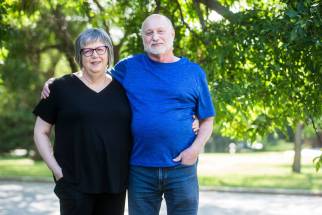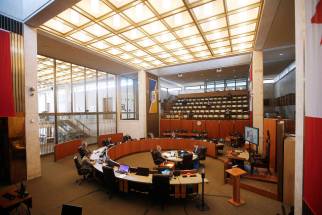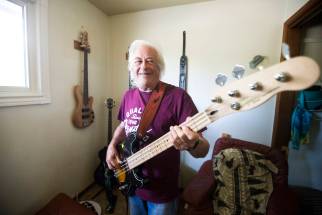Diagnosis: disrespect A rural Manitoba woman who accused a doctor of sexual assault was treated with derision by police, followed by indifference and insensitivity from the province’s physician regulator
Read this article for free:
or
Already have an account? Log in here »
To continue reading, please subscribe:
Monthly Digital Subscription
$0 for the first 4 weeks*
- Enjoy unlimited reading on winnipegfreepress.com
- Read the E-Edition, our digital replica newspaper
- Access News Break, our award-winning app
- Play interactive puzzles
*No charge for 4 weeks then price increases to the regular rate of $19.00 plus GST every four weeks. Offer available to new and qualified returning subscribers only. Cancel any time.
Monthly Digital Subscription
$4.75/week*
- Enjoy unlimited reading on winnipegfreepress.com
- Read the E-Edition, our digital replica newspaper
- Access News Break, our award-winning app
- Play interactive puzzles
*Billed as $19 plus GST every four weeks. Cancel any time.
To continue reading, please subscribe:
Add Free Press access to your Brandon Sun subscription for only an additional
$1 for the first 4 weeks*
*Your next subscription payment will increase by $1.00 and you will be charged $16.99 plus GST for four weeks. After four weeks, your payment will increase to $23.99 plus GST every four weeks.
Read unlimited articles for free today:
or
Already have an account? Log in here »
Hey there, time traveller!
This article was published 12/08/2022 (1215 days ago), so information in it may no longer be current.
The woman went to police in 2017 with a disturbing story: a physician in her rural Manitoba community was sexually assaulting female patients, she told them, and she was a victim, too.
She waited for his arrest.
Months passed. Nothing happened.
It was the beginning of the woman’s years-long fight to hold the alleged perpetrator in her town to account. Throughout her ordeal, she says she went up against police who were dismissive of her, a self-regulatory body of physicians who allowed him to continue practising and segments of a close-knit community refusing to believe a respected doctor could be harming patients.
VIDEO: Adding insult to injury
All the while, the allegations were an open secret in Ste. Anne, the woman’s quiet town of 2,000 located about 45 kilometres southeast of Winnipeg. Women there have told the Free Press they warned one another about the physician they said sexually abused female patients.
Many didn’t go to police, fearing the implications of speaking out against a prominent doctor. They had reason to be wary; even some of their loved ones — fathers, boyfriends, sisters, mothers-in-law — dismissed or minimized their concerns. They knew it would be their word against the doctor’s.
And when the woman tried to make the town’s open secret into a formal criminal allegation, she was confronted with the consequences of speaking out: walls of protection that went up around the doctor.
“Why isn’t my voice important?” the woman asks today. “Why didn’t they take this seriously?”
The Free Press has spoken at length with the woman who tried to sound the alarm. The newspaper has verified her account through email and letter correspondence she had with authorities, as well as screenshots of her online social-media posts. She cannot be identified due to a publication ban.
RUTH BONNEVILLE / WINNIPEG FREE PRESS The Seine Medical Clinic in Ste. Anne where Dr. Arcel Bissonnette worked. He now faces 22 counts of sexual assault, spanning two decades.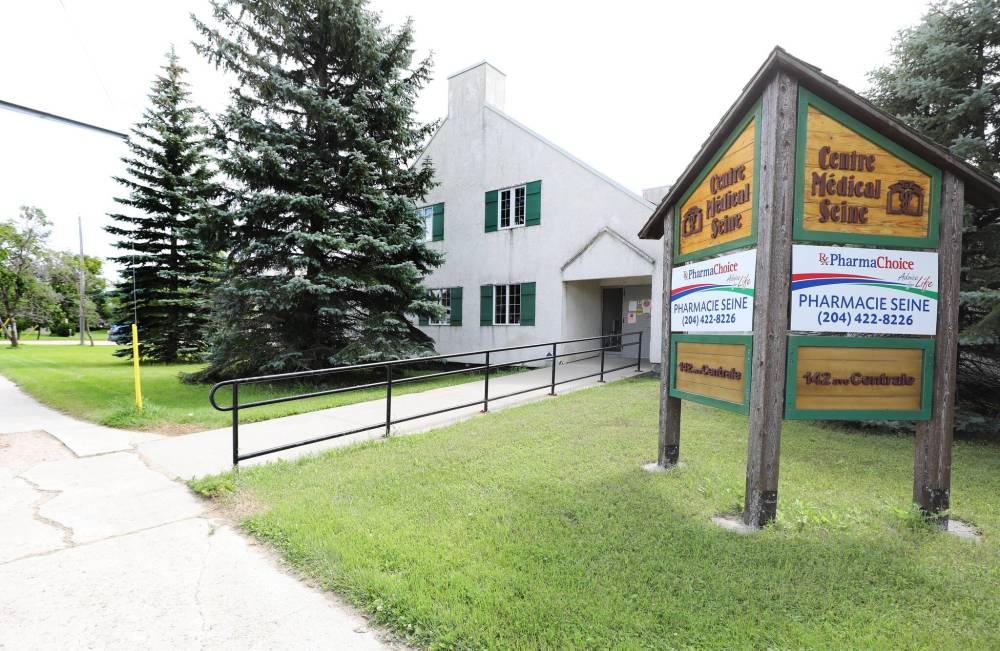
Dr. Arcel Bissonnette, a longtime Ste. Anne family physician in his 60s, was eventually charged with 22 counts of sexual assault involving female patients, including her. His case is before the courts and he is presumed innocent. His lawyer, Martin Minuk, has not responded to requests for comment. Bissonnette’s licence is effectively suspended and he is no longer listed on the province’s physician registry, overseen by the College of Physicians and Surgeons of Manitoba.
A months-long Free Press investigation into the physician watchdog’s handling of doctor misconduct has revealed the self-regulating college — doctors overseeing doctors — is overly secretive and protective of its own, putting physicians’ interests ahead of patients’ safety.
To this day, the woman still struggles with the mental-health toll of the sexual assault she says she endured 12 years ago. Compounding her trauma are the roadblocks that stood in the way of having her story believed when she decided to speak up years later.
The ordeal began in the evening of Dec. 9, 2010, when she went to the Ste. Anne hospital’s emergency department for internal pain-related issues. Bissonnette treated her.
She left the hospital that night feeling confused, angry and violated. “It was wrong,” she said of what happened. (The Free Press is not sharing details of the alleged assault at the woman’s request.)
Her mom believed and supported her. But when the woman told other people in her life, many didn’t show the concern she thought it deserved.
“Oh no, no, I don’t think that,” she recalls one of Bissonnette’s longtime patients saying after hearing the story. “He’s a wonderful doctor. He’s been so gentle and kind and sweet.”
RELATED COVERAGE
The woman buried her memories of the hospital visit, sharing them only with people she trusted. At one point, she learned a similar thing had happened years earlier to a friend, and the alleged perpetrator was the same physician.
Then, in 2017, she learned of a third victim. She started to think about other friends, other women and her young female relative who might be in harm’s way. She wanted to protect them.
In the summer of that year, she and the two other victims decided to go to the Ste. Anne Police Department, a small force comprised of a police chief, one sergeant, three constables and three casual constables, the Town of Ste. Anne website explains.
But reporting did not go as the woman had hoped.
“We were actually treated pretty badly by this one specific officer who was very ignorant and rude,” the woman said. “She almost made it seem as if we had collaborated and were kind of making this up.”
Although rebuffed, she was determined to see the case through. She continued to follow up with police.
“I asked, ‘Have you guys even gone and talked to him about this?’” the woman said. “And they said, ‘No, we don’t even know what he looks like.’”
She calls the overall handling of the case by police “disgusting,” though that officer eventually apologized for the prolonged investigation.
Police also warned her against sharing her story more publicly, she said, adding that left her worried she could be sued if she spoke out. Then she thought: would that be so bad? At least her story would be widely known.
She turned to social media.
“I can’t sit back any longer idly waiting for more victims to be made,” she wrote in a post shared on Instagram and Facebook in the fall of 2018. “I am speaking up because it needs to be known that there is a predator in our community posing as a professional.”
She didn’t name the doctor, but she quickly heard from at least 10 women saying they knew who she was talking about and that they were victims. The messages were eerily similar: women had long kept quiet and they were upset to hear others had also suffered. Some were women she knew, others strangers. It was difficult for her to listen to details of the trauma they also quietly endured.
She encouraged other potential victims to report to the police. She also let police know what she was hearing.
“I am speaking up because it needs to be known that there is a predator in our community posing as a professional.”
On Oct. 9, 2018, in an email to the Ste. Anne constable handling the case, she wrote: “Unfortunately there are MANY more women assaulted by Dr. Bissonnette. As I thought. We’re not lying. Hopefully they will be treated with the utmost respect when they do find the courage to bring their sexual assault forward. Then maybe someone will finally charge Dr. Bissonnette, who seems for some reason, to be protected.”
That same month, she also emailed a Manitoba Justice Victim Services worker. Earlier in the year, police told her the Crown was taking over the case, but the department worker told her the Crown wanted more information from police. It seemed the file was being bounced back and forth.
Again, she stressed the urgency of the matter.
“I imagine women are still being seen by him for their physical examinations,” she wrote to the worker. “What if he is still doing this to more women?… This is disgusting and the system has a huge flaw in it.”
The worker apologized for the length of time the case was taking.
When the Free Press asked Manitoba Justice for comment, a statement from an unnamed government spokesperson read: “When a large number of victims come forward in cases like this one, it requires additional time to investigate. In addition, in cases like this, victims are entitled to independent counsel to address disclosure of their private records and additional consultation with experts all takes considerable time to investigate and review properly.”
In the fall of 2018, someone suggested the woman try an alternate route: the College of Physicians and Surgeons of Manitoba, the self-regulating body that handles physician misconduct complaints. She had never heard of the college but figured it was worth a try.
She contacted the college, met with their investigators and wrote a formal complaint, outlining in specific details how she was sexually assaulted.
“I hope that the college can suspend or terminate Arcel Bissonnette’s licence until he has been properly charged for his sexual assaults,” she wrote in her complaint, dated Oct. 15, 2018.
But the college did no such thing.
Instead, it put conditions on his licence three months later requiring he have a chaperone present when conducting breast or pelvic exams on female patients. She found out through others in the community who continued as Bissonnette’s patients and saw the notice in his office about the college’s requirement.
JOHN WOODS / WINNIPEG FREE PRESS FILES
In the fall of 2018, someone suggested the woman contact the College of Physicians and Surgeons of Manitoba, the self-regulating body that handles physician misconduct complaints.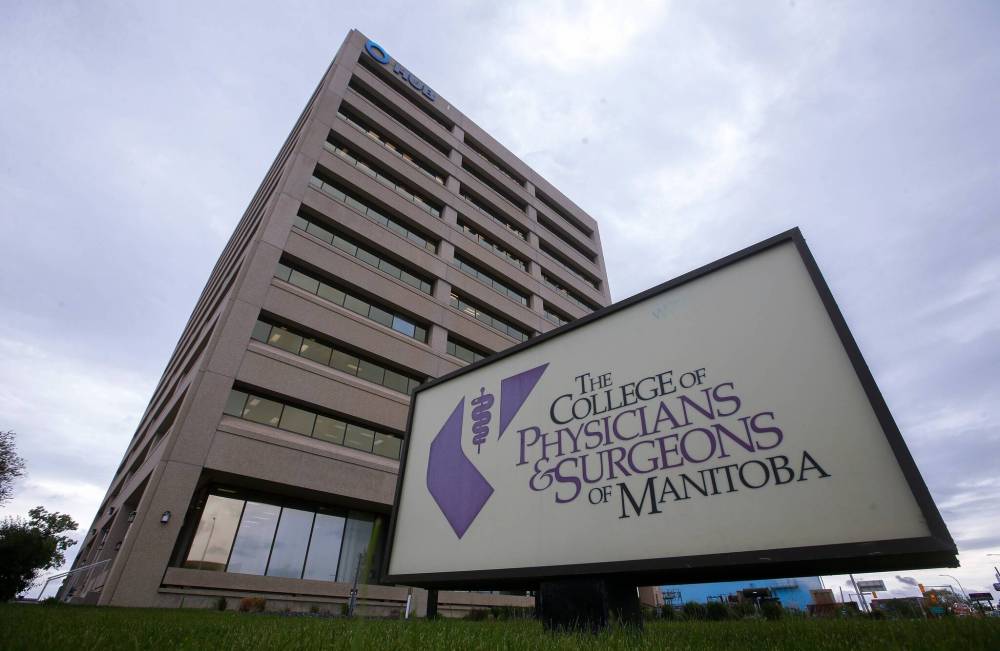
The woman couldn’t believe that was how the college chose to handle the case, with a requirement communicated through a “super-informal” sign posted in his office. To her, the formatting and wording — large black lettering on a white paper reading, “Dr. Bissonnette requires a chaperone to be present at all times when he conducts any breast or pelvic examination of a female patient”— “minimized” the significance of the requirement. It reminded her of a sign telling people to wash their hands.
“What the hell? Who made that up on a Word doc?” she said.
She also wondered if the chaperone requirement was imposed more to protect him than his patients — providing him with a witness in case any additional allegations were made.
“It just seems like they’re only trying to protect the doctor,” she said.
The college also sent her complaint to Bissonnette, standard practice after someone makes a general complaint. Then, as is also standard practice, the college shared his response with her, dismissing her allegations and using medical language that left her feeling intimidated and invalidated.
Advocates for survivors of sexual violence call the college’s practice of sharing responses “deeply insensitive” and alarming.
The woman said receiving Bissonnette’s letter was “triggering.” She still has difficulty reading or even holding it. During an in-person interview, she became visibly tense when asked to share the document, reluctant to hold it, though willing to provide it to the Free Press.
RUTH BONNEVILLE / WINNIPEG FREE PRESS A sexual assault victim faced a dismissive attitude from police when she brought forth allegations involving her doctor. She faced further stumbling blocks when she approached Manitoba’s watchdog for physicians.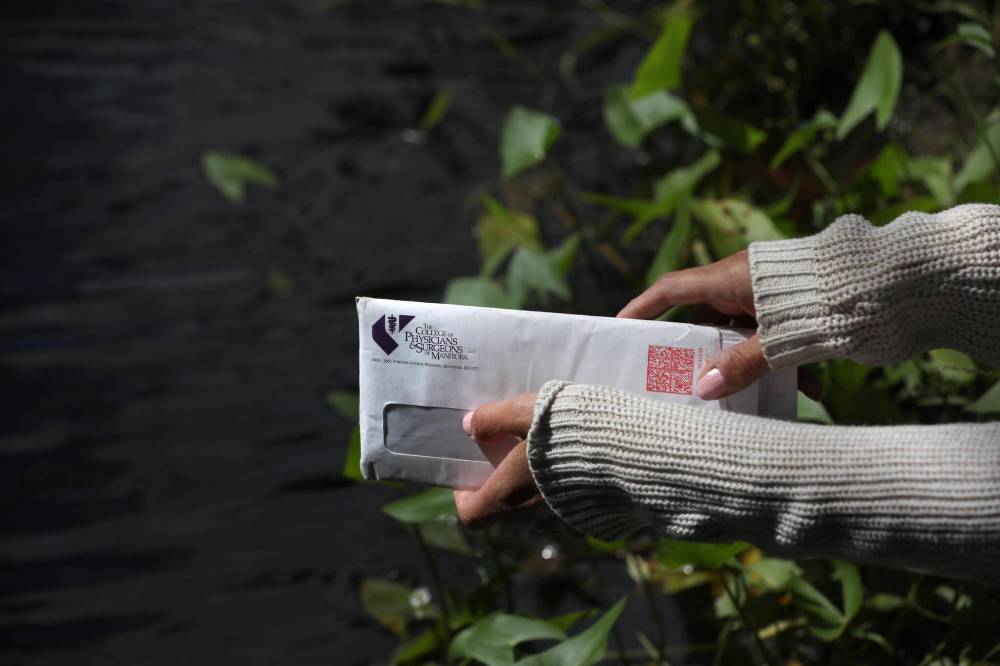
In the three-page response letter, dated Nov. 1, 2018, Bissonnette lists previous times he treated her, his typical processes when working with patients and ends saying: “She was evaluated carefully and appropriately with respect for her privacy at all times.”
The woman says communication with the college eventually dropped off. She stopped hearing from them.
Bissonnette kept practising.
Unknown to her at the time, it now appears the college shelved the case because of the police investigation.
“When CPSM becomes aware of a criminal investigation or criminal charges against a registrant, we cease to investigate complaints actively and defer to the higher authority such as the police or the courts to minimize interference with their public protection role,” college spokesperson Wendy Elias-Gagnon wrote in a statement to the Free Press this week.
The woman says the college did not give her that information, and was left to assume the investigation was ongoing.
As for why it didn’t suspend Bissonnette’s licence, the college said only the “investigation chair or committee” can suspend a doctor’s licence when they “consider it necessary to protect the public from exposure to serious risk.”
“When there are unproven allegations and the strict criteria set by the courts for interim suspension are not met, we look at other measures that can be reasonably applied to ensure patient safety,” Elias-Gagnon wrote. “This includes accepting undertakings not to practice or requiring attendants during patient encounters.”
Ste. Anne police arrested Bissonnette on Nov. 5, 2020.
He was initially charged with six counts of sexual assault involving six victims, including the woman interviewed for this story. The number of charges grew to 22 after more women stepped forward over the following year. The alleged offences span two decades and took place in the communities of Ste. Anne and Lorette. Some are alleged to have occurred after the woman went to police in 2017, others after the college imposed the chaperone requirement. As a condition of his court-ordered bail and a voluntary undertaking he signed with the college, Bissonnette cannot practise medicine.
MIKE DEAL / WINNIPEG FREE PRESS Ste. Anne doctor Arcel Bissonnette (left), with his lawyer Marty Minuk, can no longer practise medicine due to one of his bail conditions.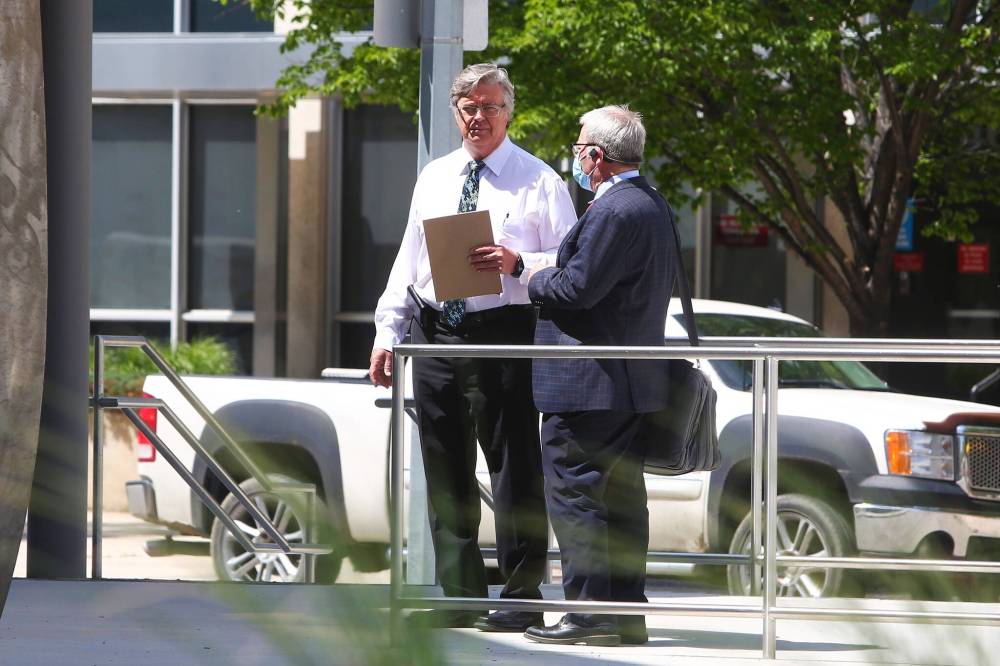
The woman says she felt relief upon learning of his arrest, but still can’t believe the lengths she had to go to for anyone with power to take her seriously.
“It was treated as if it was very unimportant,” she said.
It remains unclear why it took police three years to make an arrest. Ste. Anne police chief Marc Robichaud has not responded to requests for comment.
Another victim in this case applauds the woman for not giving up. She reported her own allegations to police soon after the matter became public in November 2020.
“She did everything (right),” the victim told the Free Press of the woman who was the whistleblower. “She tried to prevent it.”
She is outraged to hear how police and the college handled the woman’s claims and how long they were aware of the allegations.
“I hate that the systems are just so sloppy in dealing with this stuff,” she said, her voice filled with emotion. Her own alleged abuse continued for nearly 15 years and spanned a period of time that included incident dates after the woman first went to police.
She is also disturbed by how the college shared the woman’s complaint with Bissonnette, and his response.
“How is that appropriate for victims?” she said.
JOHN WOODS / WINNIPEG FREE PRESS FILES
Until now, the college would say only it was aware of “concerns” regarding Bissonnette 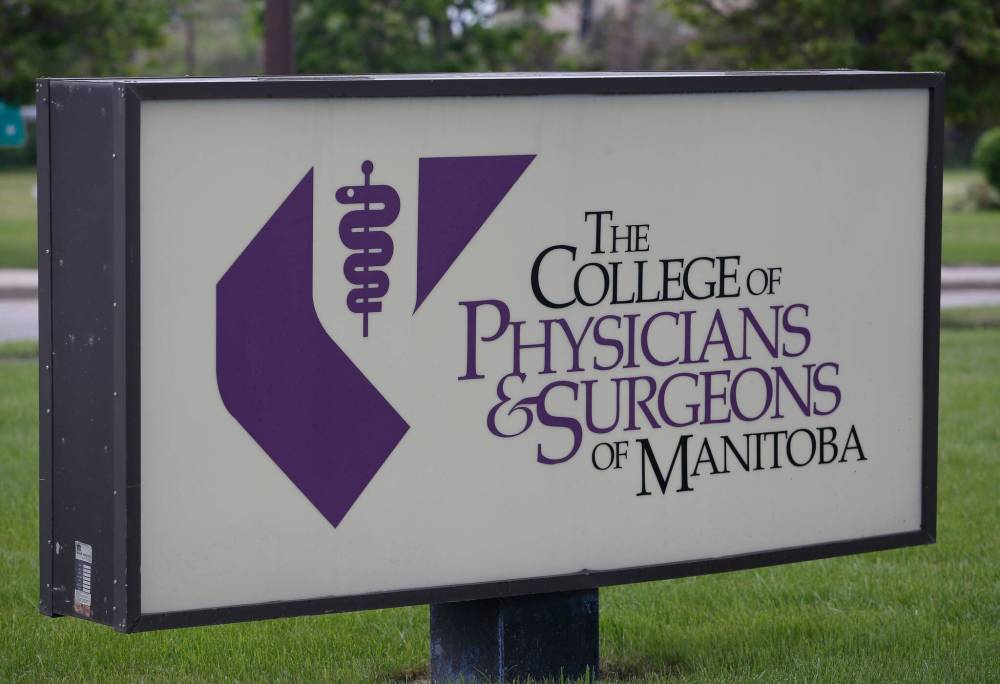
The college defended its practices. “These processes must be fair and transparent, including providing registrants with an opportunity to fully understand and respond to the investigated concerns,” Elias-Gagnon said. “However, this does not mean these practices are in place to protect physicians; just as in any other profession, there are legal requirements of fairness and due process that must be followed to determine accountability.”
Recently, the college has started providing complainants with support people during the complaint process, she said.
Until now, the college would say only it was aware of “concerns” regarding Bissonnette — never that it knew someone had accused him of sexually assaulting patients. It has cited privacy constraints under the Regulated Health Professions Act and the ongoing court case as reasons it can’t share more information.
“I definitely made them aware that it was a sexual assault,” the woman said.
Victims and experts in health policy and law have called on the province to update the RHPA to force the college to be more transparent and improve patient safety have gone unanswered. Health Minister Audrey Gordon has refused multiple interview requests. For this article, an unnamed government spokesperson said: “It would be inappropriate for minister to comment about this case as the matter is still before the courts.”
Still, the woman hopes that by telling her story, those with power will be forced to take action, preventing other women from going through what she endured.
“If there’s a problem with a broken system, how else is this supposed to be fixed?” she said.
Among the specific changes she would like to see: the college issuing an immediate or interim suspension of a doctor’s licence when they face serious allegations of sexual assault, and the college doing more to inform the public that it handles complaints. Had she known of the college’s complaint system, she said she would have stepped forward immediately after the alleged assault in 2010.
“I absolutely would have gone to the college the very next day,” she said.
Advocates for survivors of sexual violence are not surprised by the details of this case, including the lengths the whistleblower had to go to to get accountability.
“We still live in a world where women aren’t believed,” said Sonam Khangura, a front-line worker with Vancouver Rape Relief. “Women are blamed for the violence they experience.”
Khangura said the No. 1 reason why survivors report sexual assault is to protect other women. But having the courage to speak up does not mean they will be taken seriously or that alleged perpetrators will face consequences.
She says the college specifically “failed women” and must be held accountable.
“Why was protecting this man more important than (protecting) the women he was assaulting?”– Sonam Khangura
“(It) has a responsibility to say why (Bissonnette’s) licence wasn’t removed,” she said. “Why was protecting this man more important than (protecting) the women he was assaulting?”
Maddie Brockbank, a McMaster University PhD student who researches sexual violence, said systems such as self-regulating colleges are “built” in ways that serve those in power, including physicians who perpetrate harm.
“So many survivors beat themselves up (saying), ‘I should have come forward sooner’… when in reality, a lot of people who do come forward have these horrible experiences with the boards or the systems that are supposed to bring them justice,” she said.
Reviewing the details of this case, Brockbank said the college sharing an alleged perpetrator’s response with a survivor is “deeply insensitive” and not “survivor-centric.”
She added that in many cases, survivors fear or distrust groups such as police or professional governing bodies. Instead, they share stories with others in their community, as the women in Ste. Anne did.
Blair Crew, director of legal aid with Queen’s University and an expert in how police handle sexual assault cases, is surprised by the length of time it took to lay charges.
“For a sexual assault investigation to take three years is extremely unusual,” Crew said, adding the ones that take that long typically involve a perpetrator whose identity is initially unknown, which was not the case here.
Such a lengthy investigation, where police know the alleged perpetrator’s identity and charges are eventually laid, “it suggests to me that something else has changed which is really forcing the police… to go back and take a look at it,” he said.
The “something else” could be more victims appearing, he said. Still, with three women speaking up in 2017, and just six charges laid in 2020, it’s not clear why initial reports didn’t lead to charges sooner.
RUTH BONNEVILLE / WINNIPEG FREE PRESS The woman who was the original complainant has moved away from Ste. Anne. 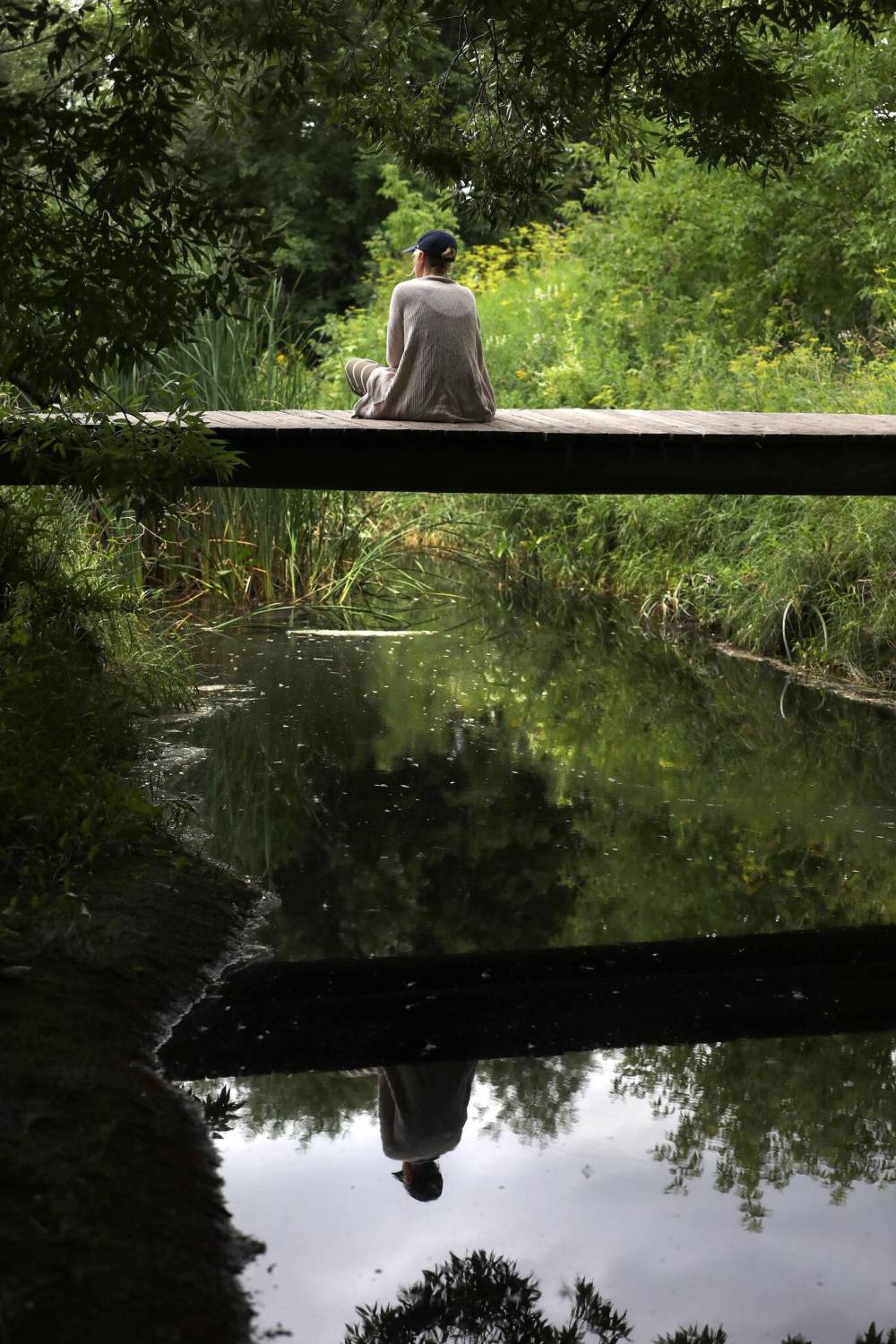
Regardless, researchers say documented cases of physicians sexual assaulting patients often involve multiple victims, something police and colleges should take seriously.
“Where there is one, there are often many,” said Lorian Hardcastle, a University of Calgary assistant professor of law.
And while colleges must balance physician privacy with patients’ rights, when there is a risk that more patients may be harmed, patient safety — and taking the necessary steps to stop harm — should take precedence, she said.
In the meantime, the woman who was the original complainant has moved away from Ste. Anne. She needed space from the community where her story began. She has sought mental-health support, but she continues to struggle in the aftermath of the decade-plus long ordeal.
“Having the courage to come forward about it and then feeling that it was just completely invalidated was extremely frustrating,” she said. “And it still very much is.”
She remains intent on ensuring her story is heard, so no one can “just sweep it under the rug.” But it has not been easy.
“I go through moments where I feel powerful, and then moments where I’m super-low. (I think) ‘Oh my God, who do you think you are? No one’s going to care.’
“But then I get angry, too.”
katrina.clarke@freepress.mb.ca

Katrina Clarke is an investigative reporter with the Winnipeg Free Press.
Our newsroom depends on a growing audience of readers to power our journalism. If you are not a paid reader, please consider becoming a subscriber.
Our newsroom depends on its audience of readers to power our journalism. Thank you for your support.




